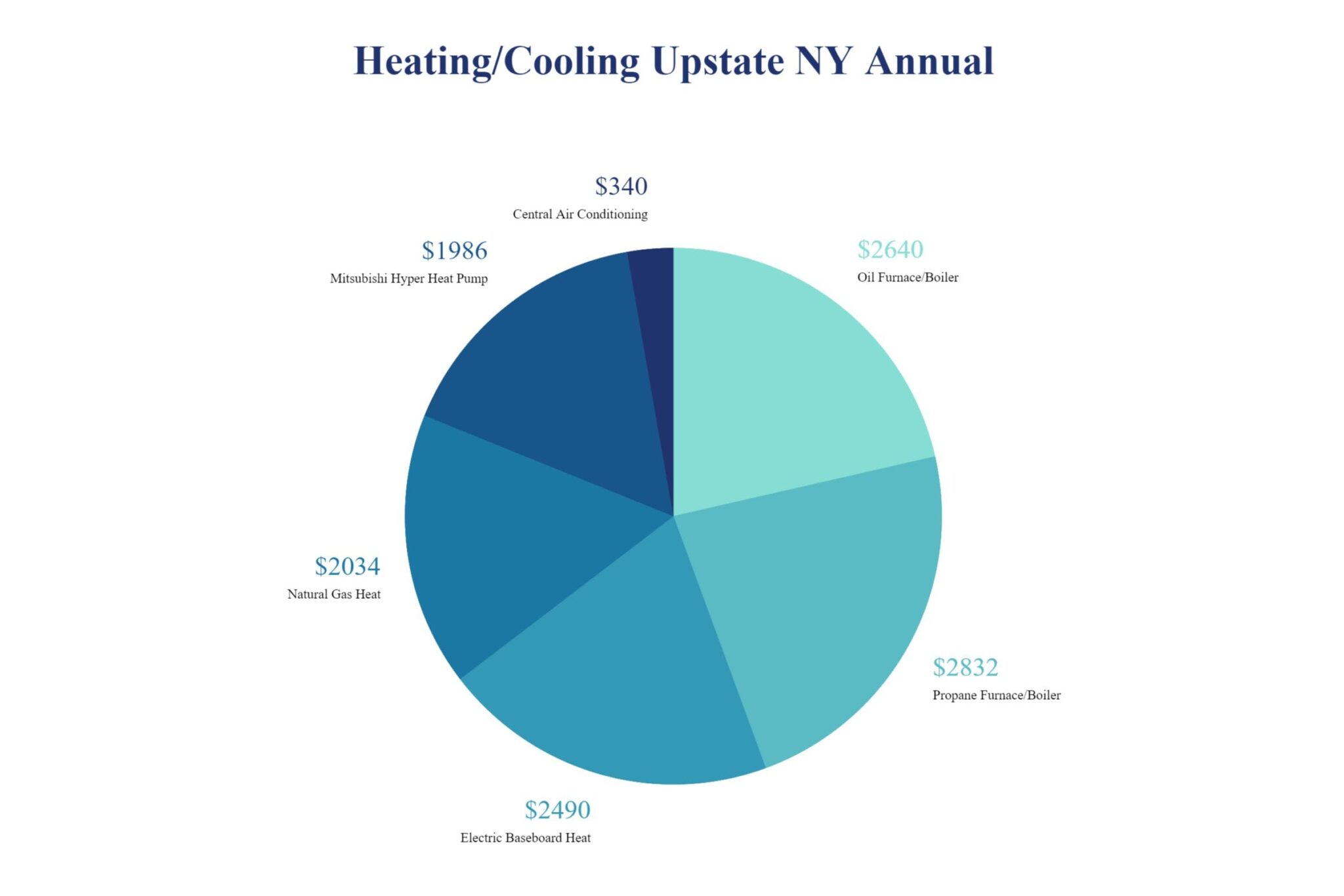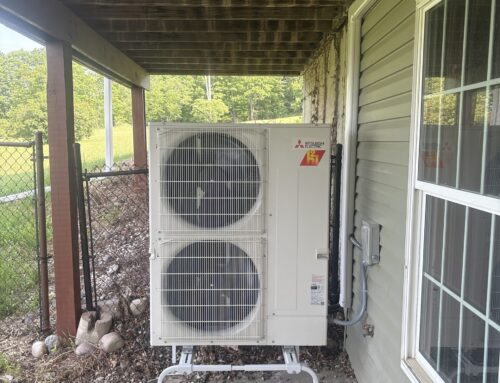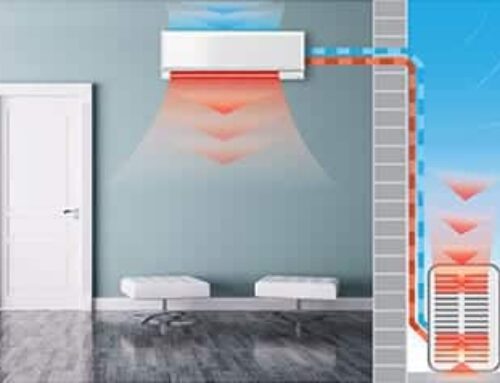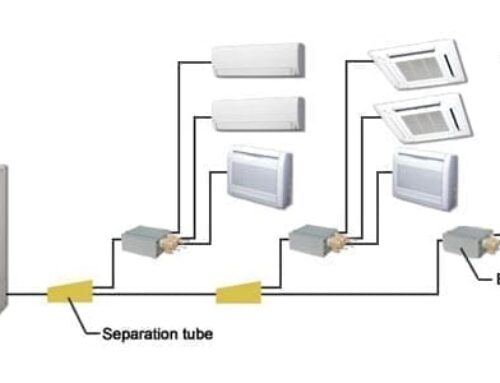
Mitsubishi Hyper Heating: The Best Cold Climate Heat Pump for New York & Vermont
Looking for a heating and cooling solution built specifically for harsh Upstate NY winters and humid summers? The Mitsubishi Hyper Heating System is the most advanced cold-climate heat pump on the market. At Superior Co-Op HVAC, we proudly install these fossil-fuel-free systems for homes across Albany, Saratoga, Troy, Ticonderoga, and surrounding areas. If you’re tired of rising energy bills, outdated oil furnaces, or inefficient window AC units, this system offers the comfort, efficiency, and savings you need—year-round.
What is Mitsubishi Hyper Heating?
Mitsubishi Hyper Heating systems are cold climate air source heat pumps designed to efficiently heat and cool homes even when outdoor temperatures plummet to -13°F. Powered by inverter-driven compressor technology, they maintain high output and efficiency in extreme cold, making them ideal for Upstate NY homes.
How the System Works:
- Outdoor Unit: Extracts heat from outside—even in freezing weather.
- Indoor Unit: Delivers warm or cool air to your living spaces.
- No Ductwork Needed: Ideal for homes without ducts or for retrofitting individual zones.
Unlike traditional furnaces that burn fuel, Mitsubishi Hyper Heating systems move heat—making them 2–4 times more energy-efficient.
📞 Get a free quote today and see how Hyper Heating can transform your home.
Key Advantages of Mitsubishi Hyper Heating for NY Homeowners
✅ Operates in Subzero Temps – Maintains performance down to -13°F (still works at -18°F).
✅ Massive Energy Savings – Cuts heating costs by 30%–50% versus oil or propane.
✅ Dual-Purpose – Heats in winter and cools in summer.
✅ Fossil Fuel Free – Reduces your home’s carbon footprint.
✅ Zoned Comfort – Control temps room-by-room for efficiency.
✅ Quiet Operation – Much quieter than central air or window ACs.
These systems are backed by Mitsubishi’s Hyper-Heating INVERTER® (H2i®) technology, ensuring consistent warmth and energy efficiency even in Upstate New York’s most brutal conditions.

Cost Savings & Rebates Available in 2025
There has never been a better time to switch to Mitsubishi Hyper Heating:
💸 Available Rebates & Incentives:
- Federal Tax Credit: 30% off installation (up to $2,000 annually)
- NYSERDA Clean Heat Program: $1,200–$2,500+ in local rebates
- Utility Rebates: Available through National Grid, NYSEG, and more
🔥 Real Cost Comparison:
If heating oil costs $3.00/gal, switching to a Mitsubishi system is like paying only $1.50/gal—a 50% reduction in fuel costs.
✅ Schedule your free rebate consultation now! Contact us here.
Cold Climate Performance You Can Rely On
Many homeowners ask: Will a heat pump really work in the coldest parts of winter?
Here’s how Mitsubishi Hyper Heating performs:
- 87% heating capacity at -2°F
- 76% heating capacity at -13°F
- Still operates reliably below -18°F
These stats make Mitsubishi a standout option compared to conventional heat pumps that fail in freezing conditions. For homes with older insulation or high heat loss, a hybrid system with backup furnace can be installed. For modern, well-insulated homes, Mitsubishi can replace your furnace completely.
Energy-Efficient Cooling for Hot NY Summers
Mitsubishi Hyper Heating systems aren’t just for winter:
✅ Summer Cooling Advantages:
- Up to 40% more efficient than traditional central AC
- Zoned cooling allows room-by-room control
- Eliminates the need for window units
Whether it’s a stuffy upstairs bedroom or an open-concept living room, you’ll stay cool with precision temperature control and lower energy bills.
Add-On Option: Heat Pump Water Heater
Upgrade your home’s entire energy system with a heat pump water heater. It uses the same technology to provide efficient domestic hot water.
💡 Save up to 60% on water heating costs.
💰 Average cost to operate: Just $15/month or less!
How Much Does a Mitsubishi Hyper Heating System Cost?
System costs vary based on home size, number of zones, and ductwork. Here’s a general idea:
- Single-Zone Ductless System: $4,000–$8,000 installed
- Multi-Zone Whole-Home System: $10,000–$20,000
Factors That Affect Price:
- Size of the home and number of indoor units
- Whether ductless or ducted
- Accessibility and complexity of installation
💬 Want a customized quote? Click here to schedule your free estimate.
Frequently Asked Questions
Q: Can Hyper Heating replace my furnace completely?
A: Yes, especially in well-insulated homes. In older homes, it can be used alongside a furnace.
Q: Will it really save money in the long term?
A: Absolutely. Most customers report 30–60% lower utility bills.
Q: Is financing available?
A: Yes! We offer flexible financing plans to make installation affordable.
Q: Can I use it to cool my home in the summer?
A: Yes. It functions like a high-efficiency air conditioner.
Q: Is it noisy like a window AC unit?
A: No. These systems are whisper-quiet, indoors and out.
Don’t Wait—Make the Switch to Mitsubishi Hyper Heating in 2025
With huge incentives, rising energy prices, and growing demand for energy-efficient technology, there’s never been a better time to upgrade your home’s HVAC system.
📞 Call Superior Co-Op HVAC at 518-719-5614 to schedule your free, no-obligation quote today!
📍 Serving Albany, Saratoga, Troy, Ticonderoga, and all of Upstate NY.
👉 Click here to request a quote online and learn how much you could save by switching to Mitsubishi Hyper Heating!
Additional Advantages of Choosing Mitsubishi Hyper Heating
Smart Home Compatibility
Mitsubishi systems are compatible with smart thermostats and platforms like Google Home, Amazon Alexa, and Mitsubishi’s Kumo Cloud™ app, allowing homeowners to monitor, control, and optimize their home’s heating and cooling from anywhere.
With features like scheduling, remote diagnostics, and real-time energy tracking, managing comfort and efficiency has never been easier.
Scalable for Any Home Size
Whether you live in a small ranch, a multi-story colonial, or a large farmhouse, Mitsubishi Hyper Heating systems are scalable to fit your layout. From one-zone systems for individual rooms to multi-zone installations for entire homes, your system is designed to meet your specific needs—no one-size-fits-all solutions here.
Perfect for Renovations, Additions, and Historic Homes
Older homes in Upstate NY often lack existing ductwork. Mitsubishi ductless systems offer a low-impact alternative that avoids major renovations. Their sleek indoor units integrate into almost any room without disturbing original architecture or finishes.
This makes them ideal for:
- Renovation projects
- Home additions
- Garage conversions
- Finished basements or attics
- Historic properties
Mitsubishi vs. Other Heat Pump Brands
| Feature | Mitsubishi Hyper Heating | Generic Heat Pumps |
|---|---|---|
| Operates to -13°F | ✅ Yes | ⚠️ Some lose efficiency below 30°F |
| Zoned Comfort | ✅ Yes | ⚠️ Not all support zoning |
| Energy Rebates | ✅ Eligible | ⚠️ May not qualify for same incentives |
| Quiet Operation | ✅ Whisper-quiet | ⚠️ Can be noisy |
| Long-Term Reliability | ✅ Proven in cold climates | ⚠️ Varies by brand |
With decades of proven performance in cold climates and an unmatched support network, Mitsubishi Hyper Heating remains the gold standard in heat pump technology.
Our Installation Process: What to Expect
At Superior Co-Op HVAC, we make your transition to Hyper Heating simple and stress-free:
- Free In-Home Assessment – We inspect your current HVAC setup, insulation, and layout.
- Manual J Load Calculation – Required for NYSERDA rebates and to ensure system sizing accuracy.
- Custom System Design – Tailored zoning, ducted or ductless components, and smart controls.
- Professional Installation – Clean, efficient, and respectful of your space.
- Rebate Assistance – We handle all paperwork to help you secure every available incentive.
- Post-Install Support – Our team is just a call away for maintenance and system tuning.
Customer Testimonials
“We installed a Mitsubishi Hyper Heating system last winter and saw a huge drop in our heating bill. Our second floor was always cold—now every room is consistently warm!”
— Karen T., Saratoga Springs, NY
“Superior Co-Op HVAC was incredible to work with. They walked us through the rebates and made the install seamless. Quiet, efficient, and we love the remote app!”
— Mike D., Ticonderoga, NY
“We wanted to stop using oil and go green. These systems are next-level. We’re comfortable year-round and saving money. Highly recommend.”
— Tom R., Albany, NY
Ready to Take the Next Step?
📞 Call Superior Co-Op HVAC at 518-719-5614
🖱️ Or click here to request a personalized quote online
📍 Serving Albany, Saratoga, Troy, Ticonderoga, Glens Falls, and all of Upstate New York
Let us help you reduce your bills, increase comfort, and make the shift to smarter, greener home heating and cooling!
Save More, Stay Informed!
Sign up for our newsletter and be the first to receive:
✅ Exclusive Sales & Rebates on Mitsubishi Heat Pumps.
✅ Industry News and Expert HVAC Tips.
✅ Updates That Help You Save Energy and Money.






